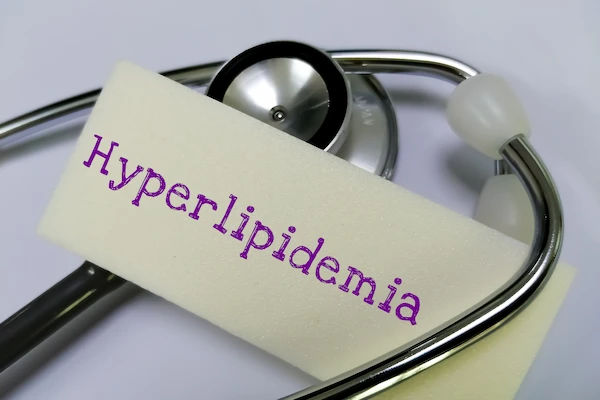Hypokalemia Causes, Symptoms, and Treatment Options
Understand hypokalemia, its causes, symptoms, and treatment options. Learn how low potassium levels affect health and ways to restore balance effectively.

Written by Dr. Rohinipriyanka Pondugula
Reviewed by Dr. J T Hema Pratima MBBS
Last updated on 26th Aug, 2025

Hypokalemia is a medical condition where the potassium levels in your blood drop below normal. Potassium is a vital mineral that helps your muscles, nerves, and heart function properly. When potassium levels are too low, it can lead to weakness, fatigue, and even serious heart problems.
In this article, we’ll explain what hypokalemia is, its causes, symptoms, and treatment options in simple terms. We’ll also share some lifestyle tips to help you manage and prevent this condition.
What is Hypokalemia?
Potassium is an essential electrolyte that helps:
Regulate muscle contractions (including your heart).
Maintain proper nerve function.
Balance fluids in the body.
A normal potassium level ranges between 3.5 to 5.0 mmol/L. When it falls below 3.5 mmol/L, it is called hypokalemia. Severe hypokalemia (below 2.5 mmol/L) can be life-threatening and requires immediate medical attention.
Consult a Top Specialist
Common Causes of Hypokalemia
Hypokalemia can occur due to various reasons, including:
1. Excessive Potassium Loss
Diarrhea or vomiting – Losing fluids can also flush out potassium.
Excessive sweating – Athletes or people working in hot climates may lose potassium through sweat.
Kidney problems – Certain kidney disorders cause excess potassium excretion in urine.
Diuretics (water pills) – Some blood pressure medications increase urine output, leading to potassium loss.
2. Low Potassium Intake
Poor diet – Not eating enough potassium-rich foods like bananas, spinach, and potatoes.
Eating disorders – Conditions like anorexia or bulimia can lead to malnutrition and low potassium.
3. Hormonal Imbalances
Hyperaldosteronism – A condition where the adrenal glands produce too much aldosterone, leading to potassium loss.
Cushing’s syndrome – High cortisol levels can reduce potassium.
4. Other Medical Conditions
Magnesium deficiency – Low magnesium can make it harder for the body to retain potassium.
Chronic laxative use – Overuse can lead to potassium depletion.
Symptoms of Hypokalemia
Mild hypokalemia may not cause noticeable symptoms, but as levels drop further, you may experience:
Muscle weakness or cramps
Fatigue and tiredness
Constipation (due to slowed digestion)
Irregular heartbeat (palpitations or arrhythmia)
Tingling or numbness (due to nerve issues)
Frequent urination or excessive thirst
In severe cases, hypokalemia can cause:
Paralysis (temporary muscle weakness)
Respiratory failure (due to weakened breathing muscles)
Dangerous heart rhythms (leading to cardiac arrest)
If you experience severe symptoms like chest pain, extreme weakness, or irregular heartbeat, seek emergency medical help immediately.
Diagnosis of Hypokalemia
Doctors diagnose hypokalemia through:
Blood tests – To measure potassium levels.
Urine tests – To check if excess potassium is being lost through urine.
ECG (Electrocardiogram) – To detect abnormal heart rhythms caused by low potassium.
If you suspect hypokalemia, consult a doctor for proper testing. You can book a potassium level test or ECG easily through Apollo 24|7 for quick and accurate results.
Treatment Options for Hypokalemia
Treatment depends on the severity and underlying cause:
1. Mild Hypokalemia (3.0 - 3.5 mmol/L)
Dietary changes – Increase potassium-rich foods like:
Bananas
Oranges
Spinach
Sweet potatoes
Avocados
Beans
Oral potassium supplements – If prescribed by a doctor.
2. Moderate to Severe Hypokalemia (Below 3.0 mmol/L)
Intravenous (IV) potassium – For rapid correction in a hospital setting.
Treating the underlying cause – Adjusting medications (like diuretics) or managing kidney/adrenal disorders.
Never self-medicate with potassium supplements – Too much potassium (hyperkalemia) can also be dangerous. Always follow medical advice.
Prevention and Lifestyle Tips
To maintain healthy potassium levels:
Eat a balanced diet – Include potassium-rich fruits, vegetables, and nuts.
Stay hydrated – Especially if you sweat a lot or have diarrhea.
Limit alcohol and caffeine – They can increase potassium loss.
Monitor medications – If you take diuretics, ask your doctor about potassium-sparing alternatives.
Regular check-ups – If you have conditions like high blood pressure or kidney disease, monitor potassium levels periodically.
When to See a Doctor?
Consult a healthcare provider if you:
Experience persistent muscle weakness or cramps.
Notice irregular heartbeats.
Have chronic diarrhea or vomiting.
Are on medications that affect potassium levels.
If you need expert advice, you can consult a doctor online via Apollo 24|7 for personalized guidance.
Final Thoughts
Hypokalemia is a treatable condition, but ignoring it can lead to serious complications. By understanding the causes, recognizing symptoms early, and making simple dietary adjustments, you can maintain healthy potassium levels.
Consult a Top Specialist
Consult a Top Specialist

Dr. Mohamed Azeem
General Physician/ Internal Medicine Specialist
2 Years • MBBS,MD(Internal Medicine) CCEBDM
Karaikudi
Apollo Hospitals Karaikudi, Karaikudi

Dr. Sandhya Chandel
General Physician/ Internal Medicine Specialist
16 Years • MBBS, MD (Int. Med.), IDCCM
Bilaspur
Apollo Hospitals Seepat Road, Bilaspur
(125+ Patients)

Dr. Anand Ravi
General Physician
2 Years • MBBS
Bengaluru
PRESTIGE SHANTHINIKETAN - SOCIETY CLINIC, Bengaluru

Dr Syed Mateen Pasha
General Physician
2 Years • MBBS
Bengaluru
PRESTIGE SHANTHINIKETAN - SOCIETY CLINIC, Bengaluru

Dr. Harshendra Jaiswal
General Physician/ Internal Medicine Specialist
12 Years • MBBS , MD (General medicine)
Kolkata
108 DHANA DHANVANTARI Clinic, Kolkata
(25+ Patients)




.webp)